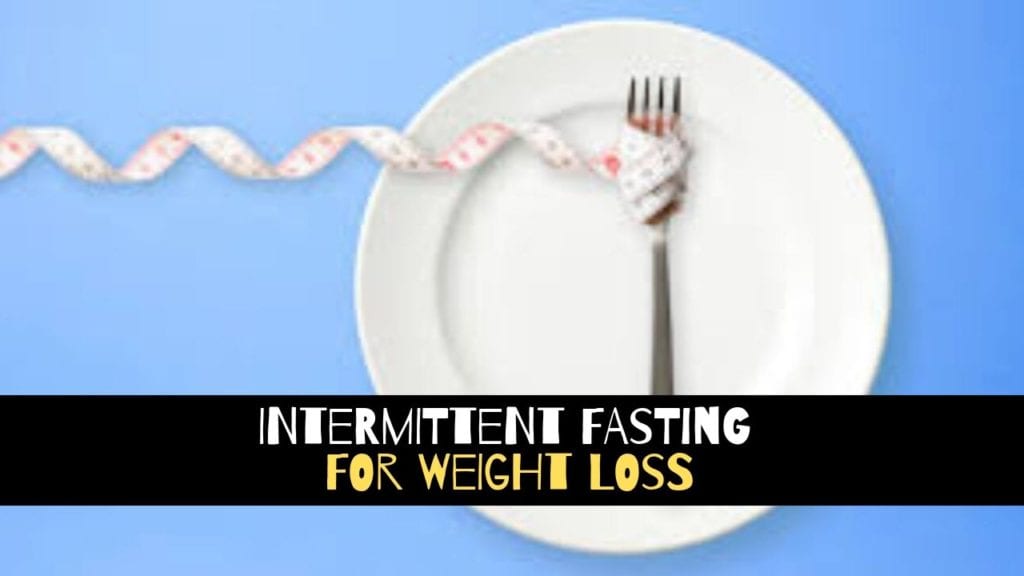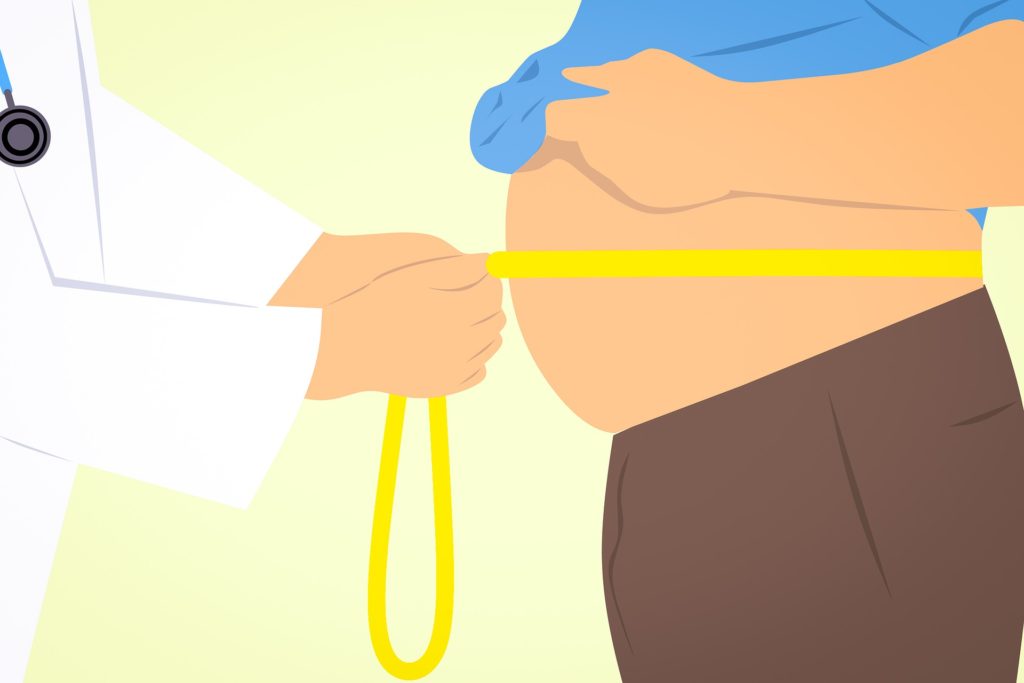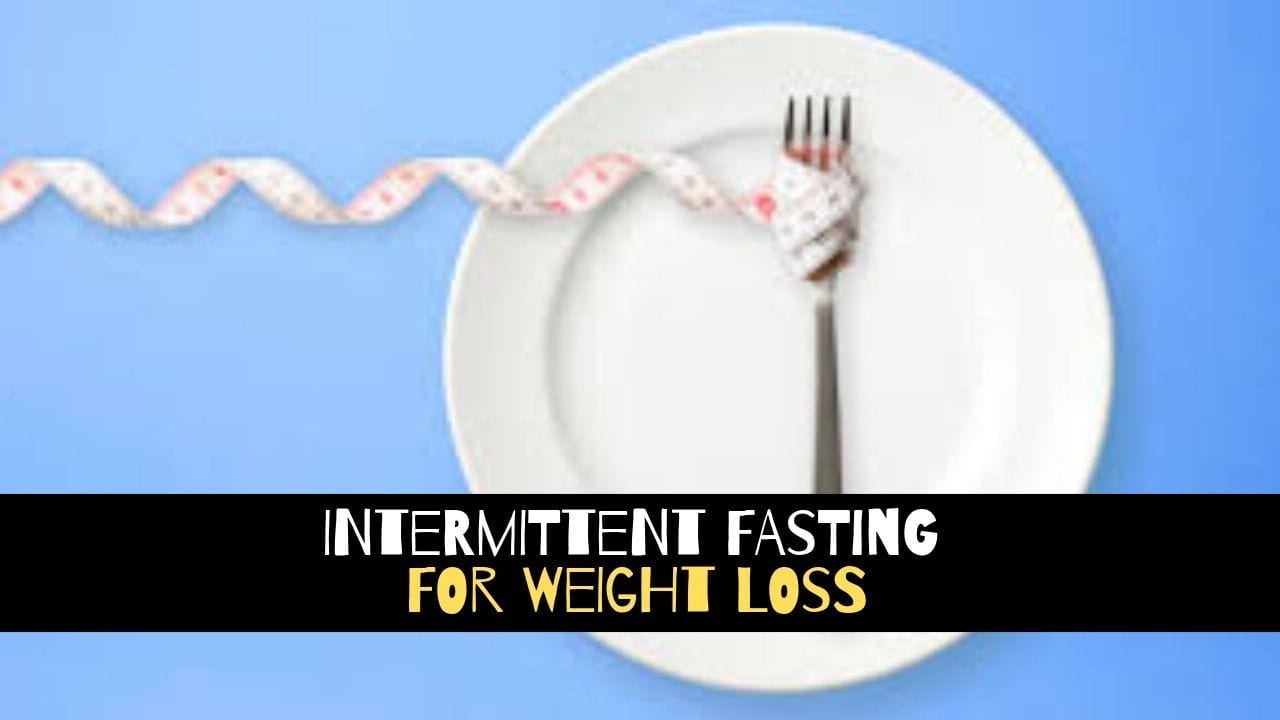If you’re looking for a diet program that can provide real results to help you lose weight, then you might want to consider Intermittent Fasting. In this article, we’ll discuss the benefits of intermittent fasting specifically from a weight loss perspective so you can decide if this lifestyle is right for you.

Editor’s Note: This article is part of a series on Intermittent Fasting.

Hi, I’m Mike, That Helpful Dad. I’ve been living the Intermittent Fasting lifestyle for about 2 years now and it’s changed my life for the better. I hope it can help you too.
What is Intermittent Fasting?
Since this article is focused specifically on Intermittent Fasting for Weight Loss, we won’t spend a lot of time on definitions. We have other articles that dive deeper into the science behind Intermittent Fasting and all the various Intermittent Fasting schedules you can use to tailor an IF lifestyle that works best for you.
But, to ensure we’re on the same page, let’s give a simple definition for Intermittent Fasting as follows…
Intermittent Fasting is “a diet plan that cycle between a period of fasting and non-fasting over a defined period.”
A popular schedule for Intermittent Fasting is 16/8 for men or 14/10 for women. What that means is fasting for 16 hours and eating within an 8 hour window (or) fasting for 14 hours and eating within a 10 hour window. But other intermittent fasting schedules are options too – there is basically something for everybody with intermittent fasting.
Intermittent Fasting for Weight Loss
Will intermittent fasting help you lose weight? If so, how does intermittent fasting for weight loss work? Great questions, I’m glad you asked!
Since most of my readers are Average Joe’s like me this is not a high science blog, I won’t bore you with the pathophysiology behind how Intermittent Fasting works at the metabolic level, (however there are some great articles on this I’ll link to in the references section below).
For our purposes, the reason why Intermittent Fasting seems to work for weight loss is basically common sense…
If you are restricting or eliminating calories consistently over time, then you’ll tend to lose weight. It’s not rocket science.

Remember, with intermittent fasting you are not eating for a predefined period of time (for example 16 hours) – during this window you’ll be consuming little to no calories. Now when you put yourself into this ‘fasting’ state, a lot of potentially positive effects are occurring within your body that may benefit you beyond just the weight loss effect of IF, but given our focus on weight loss, the key here is that because you are not eating, you’re by definition restricting calories (at this during this time period) — and if you do that consistently over time you’ll lose weight.
So that’s it? Intermittent Fasting is just caloric restriction?
Not quite.
Myself and other proponents of IF would argue that Intermittent Fasting is much more than just restricting calories – after all history has shown us that diets solely focused on calorie counting, calorie restriction, and other ‘starvation’ diets tend to not be effective over a long period because people can’t (and frankly don’t want to) maintain that type of diet for every long – and when they come off of that type of diet there is a high rebound rate where people tend to put back the weight the lost (and possibly even gain more).
So what’s different with IF?
Intermittent Fasting vs Calorie Restriction Diets.
Will you likely restrict calories when you practice intermittent fasting?
Probably.
Does intermittent fasting REQUIRE you to restrict calories?
No.
Remember, intermittent fasting is basically a preset period not eating (the fasting state ) followed by a preset period of eating (the fed state; not to be confused with the feasting state). There’s nothing in the definition of IF or even in most of the various schedules associated with IF that specifically talk about calorie restriction.
It’s important to understand the difference between IF and basic calorie restriction diets because if you don’t then you may not have success with Intermittent Fasting.
Why?
Because if you gorge yourself on junk food during the time of you eat with IF and you consume more calories then you need each day, then you will GAIN WEIGHT with intermittent fasting.

Oops!
When I talk to people who are new to Intermittent Fasting I basically tell them that I stop eating around 6pm, skip breakfast and just have black coffee (or coffee with butter), and then start eating again at 10am. (I follow the 16/8 Intermittent Fasting version). Then, between 10am and 6pm I basically eat whatever I want.
While that’s true, there is an important caveat – when I say I eat whatever I want, I don’t eat lots of junk food. Don’t get me wrong, I love chicken wings, beer, nuts, and I can crush a whole bag of Doritos if you give it to me. I DO still eat all those things. HOWEVER I don’t do that every day because, first off I don’t want to, and secondly, I know that Intermittent Fasting isn’t going to overcome poor eating habits.
So I’ll say again, if you eat more calories than you need each day, then Intermittent Fasting isn’t going to be a weight loss solution for you and, more likely than not, you’ll probably gain weight with IF.
That would be disappointing. I don’t want to see that happen to you.
Intermittent Fasting for Weight Loss – a Plan for Success

If you really want to succeed with using intermittent fasting for weight loss, then you do yourself a favor and find out how many calories you need per day to maintain your weight. To do this, use a caloric calculator (Healthline has one that’s free and easy to use here).
As Healthline notes “an average woman needs to eat about 2000 calories per day to maintain, and 1500 calories to lose one pound of weight per week. An average man needs 2500 calories to maintain, and 2000 to lose one pound of weight per week.”
So if you are looking to lose a pound a week, shoot for the daily calorie target associated with your personal situation. For me, the goal is APPROXIMATELY 2000 calories a day.
I say ‘approximately’ because I don’t actually count calories, I just estimate them roughly throughout the day. In that sense, Intermittent Fasting is a fairly forgiving diet plan (so long as your estimates are not way off!).
OK, I know my daily calorie goal, so now what?
Once you know your daily calorie goal, then use Intermittent Fasting to help you achieve it.
This is the real beauty of Intermittent Fasting – it makes is a LOT easier to achieve a daily calorie goal because you’re limiting the time period in which you are eating and from there it’s simple math.
The less time you spend eating, the greater your chances of consuming less calories. This is the real key behind using Intermittent Fasting for Weight Loss.
STOP RIGHT THERE – so basically you’re saying you still want me to starve myself? , Mike, this sounds even worse than a starvation diet because now I have to starve myself for longer periods of time. That sucks. No way!
Intermittent Fasting = Starvation?
WRONG!
While it’s true that you won’t be eating for extended periods of time, you’re definitely NOT starving yourself. So long as you’re not eating a bunch of junk food, and you follow your normal healthy diet, you can eat whatever you want.
Look, here’s the bottom line with IF – if you simply skip the after dinner snacks and skip breakfast, you’ll probably have a pretty easy time with Intermittent Fasting for weight loss.
Seriously, is it really that hard to stop eating around 6pm and then not eat the next day till 8am (14 hour fast) or 10am (16 hour fast)? It’s not hard. I can do it and so can you.
Eat what you want (within reason), but just eat that food during the intermittent fasting schedule that works for you. Do it consistently over time and watch the pounds (and your waist line) melt away.
Intermittent Fasting for Weight Loss Resources
One of the goals of our site is to curate quality content from other sites and share it with you. The following articles on intermittent fasting for weight loss may be helpful to you:
- Harvard School of Public Health – Diet Review – Intermittent Fasting for Weight Loss
- Medical News Today – How to begin Intermittent Fasting
- Healthline – Intermittent Fasting 101 – Beginner’s Guide
- Wikipedia – Intermittent Fasting Resources
Intermittent Fasting for Weight Loss Books
What to Read Next?






